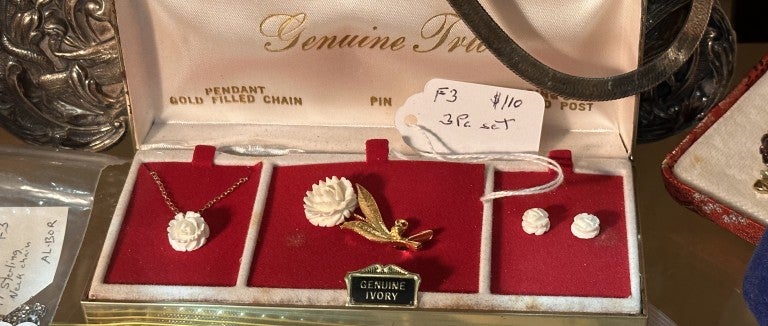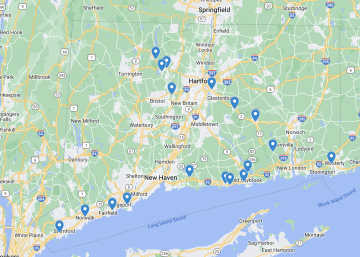Under U.S. federal law, new elephant ivory cannot be imported, exported or sold across state lines. Antique ivory can be sold provided the seller has documentation on the item’s age and origin. Without required documentation proving that the item is an antique at least 100 years old, however, the ivory items we discovered for sale could potentially be new ivory sourced from recently poached elephants.
Some sellers admitted that mislabeling ivory as “bone” is a common practice to get around the law. At some stores, ivory pieces were labeled with misleading or false information or sellers claimed not to know the material. Other pieces were clearly labeled and identified by the seller as ivory. But without the proper documentation, it is impossible to know whether items were imported in violation of federal law.
Importantly, federal law does not address sales within a state, which is why state laws are needed to close the loophole in local markets. Without strong laws, the loophole continues to create incentives for the poaching of elephants and other imperiled species so their parts and products can be commercially sold.
The illegal wildlife trade is a multibillion-dollar, transnational enterprise that incentivizes the wanton killing of animals for their parts. It is driving elephants and other endangered and imperiled species to the brink of extinction and encourages criminal syndicates with the promise of black-market cash.
Each year, between 10,000 to 15,000 African elephants are killed by poachers. The poaching of elephants is horrific: Poachers often hack off the animals’ tusks while the elephants are still alive. Babies and juveniles aren’t even spared. At the shops we visited in Connecticut, the consumers perusing ivory trinkets would likely be appalled to find out they are contributing to the victimization of these animals.
While some shop keepers told our investigators that they know the sale of ivory is against federal law, others gave oblique explanations of the legality of purchasing ivory, seemingly in order to make a sale. Still others may not have been aware that they were selling illicit ivory. This is why banning the sale of ivory within state borders is necessary as a complement to current federal law and for strengthening enforcement efforts. Local ivory markets provide a cover for illegal ivory, as it is near impossible to visually distinguish illegal ivory from legally acquired ivory.
Many of the shops found selling ivory were located along the coast and near the New York border. New York State banned the sale of ivory in 2014, as did New Jersey the same year. It is critical for Connecticut to take action to ensure it is not a haven where the illicit wildlife trade can flourish.
Thirteen states and Washington, D.C., have enacted laws in recent years to ban the intrastate sale of ivory. Connecticut must follow suit by introducing a bill in the legislature to close local markets.
If you are a resident of Connecticut, take a stand for elephants and other at-risk species by urging legislators to curb Connecticut’s participation in the illicit ivory trade.
Follow Kitty Block @HSUSKittyBlock.




